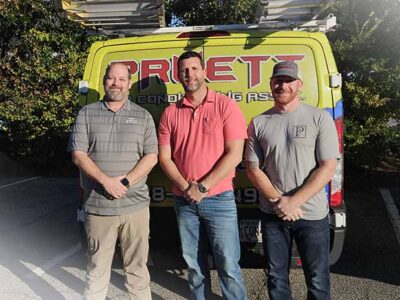Frequently Asked Questions
You may have questions about selecting and purchasing, maintaining, or repairing a heating and air system for your home or business. As your local HVAC service pros, we have answers to some of those questions below – and if you need any other answers, your neighbors at Pruett will be happy to help you out.

